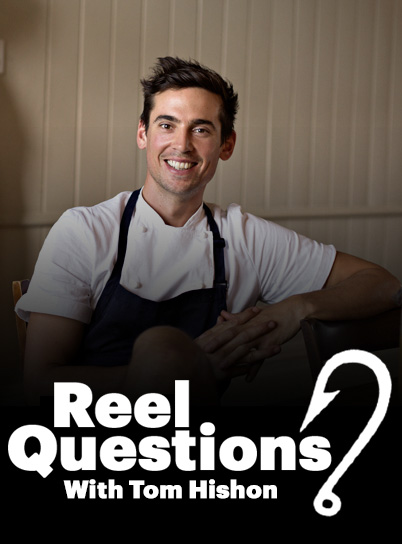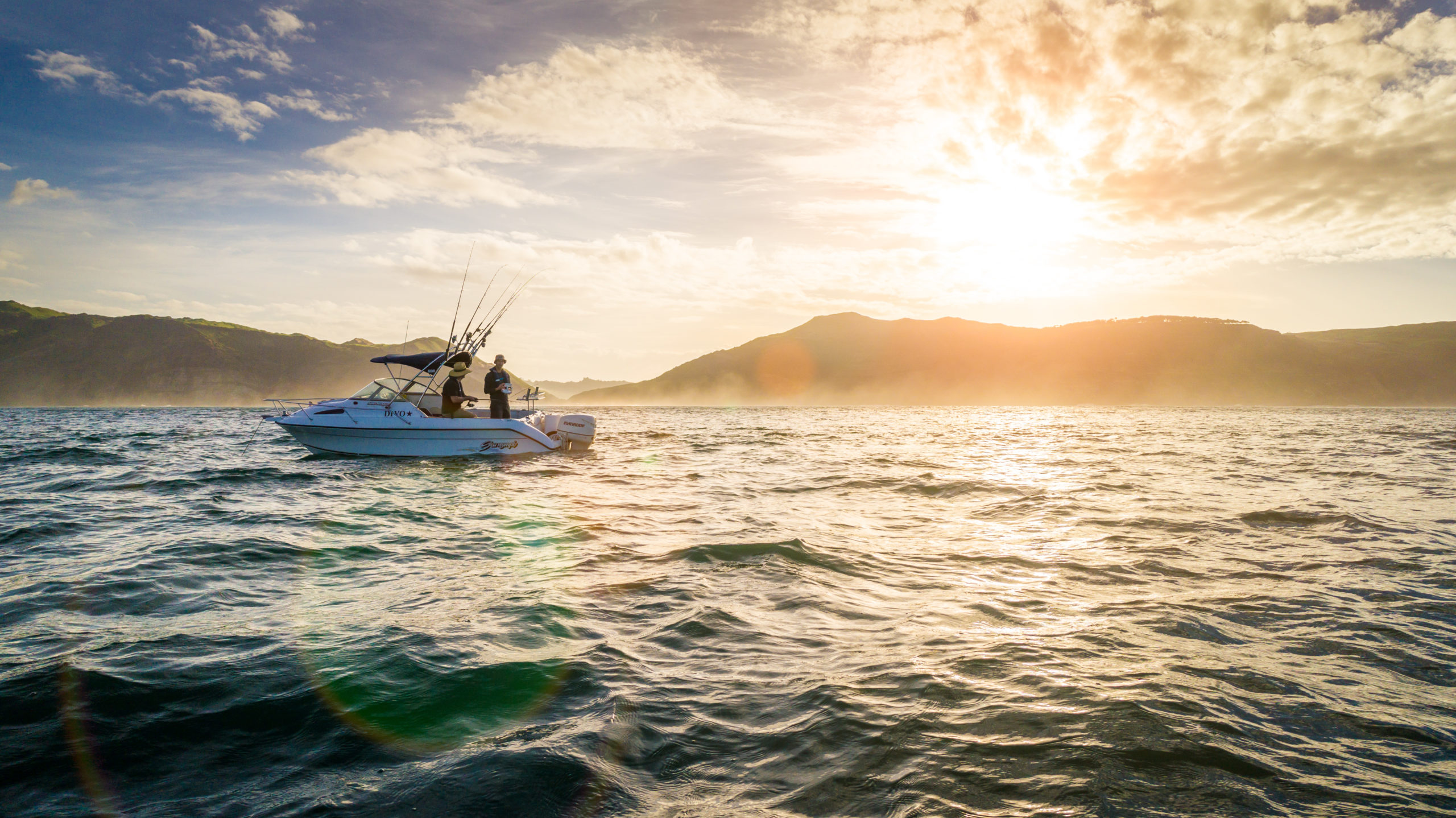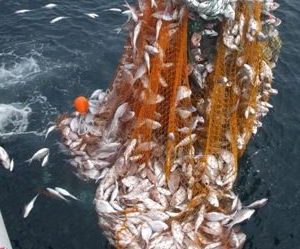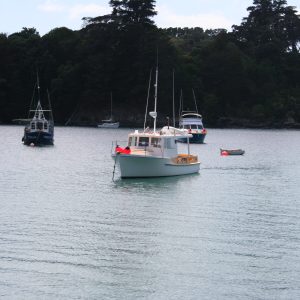Reel Questions is a commentary series providing an insight to the opinions and experiences of individuals who have ties with our fish life and marine environment whether it be their livelihood, playground, creative influence, culture or simply a part of their lives. They all have a varied relationship with our coast and fish.

Tom Hishon is the Executive Chef and co-founder of kingi, a sustainable seafood restaurant in downtown Auckland that focuses on supporting independent fishers from around New Zealand.
He also set up Orphan’s Kitchen (2013) and artisanal bakery Daily Bread (2018).
In 2016, Orphan’s Kitchen was selected as Metro Magazine runner-up for Restaurant of the Year, and they regained their title of 2016 Best City Bistro while Tom picked up the 2016 Chef of the Year award. Tom was also awarded Cuisine Magazine’s inaugural Innovation in Food award.
Tom is passionate about doing his part to define New Zealand’s food culture. He believes that innovation and an intimate knowledge of our natural environment is essential to developing a national food identity that we can all be proud of.
1. What is your earliest memory of harvesting/eating seafood?
I’d say my most earliest memory would be gathering Pipi’s from a local beach close to our home. Purging them in a bucket of fresh water, throwing a weet-bix to remove the sand was probably what made the memory sick in my mind as well as the smell of bbq’d shellfish, sweet oceany brine and chewy texture.
2. Tell us a bit about where your seafood comes from.
All of our seafood is sourced from independent fishermen and women from around New Zealand. We chose to work with people who share our values of kaitiakitanga. This means purchasing from those who fish from day boats using a hook and line, pot fishers, divers and bivalve farmers, such as mussel farmers, that have a net positive impact on the environment.
Essentially nothing trawled will be on our menu or no company that supports these practices will be purchased from.
3. Seasonality and sustainability are closely linked. Do you/will you be changing your menu seasonally?
I am a big believer in diversity of species and love what the warmer months bring to our waters as much as I do for the cold ones too. As an industry there needs to be closer monitoring or restrictions around when the fish are spawning to take the pressure off and let them reproduce to increase biomass and biodiversity.
4. What does the concept of sustainability mean to you?
Sustainability in relation to fishing and the ocean means to me, To not disrupt or degrade the environment to a degree that has a negative or unstable impact on the ecosystem. Any form of fishing method that has these negative impacts or produces By-catch should be illegal in New Zealand waters. Endemic sea birds, dolphins, as well as the smaller species of fish have a huge part to play in the food chain and should have greater protection.
5. Why is it important to you that all of Kingi’s seafood is sustainably caught and locally operated?
Kingi was a challenge to myself to have a seafood restaurant that showcases local kaimoana and supports the environment where it has come from. The people out there harvesting it, their families and community is also important to me as well.
New Zealand is surrounded by a bounty of seafood, but consumers often don’t think about where their seafood comes from. How do you think actioning by Kingi will help shift peoples perspectives?
I think it is something that is gradual around educating the consumer, I’d like to think we are doing our bit but essentially the consumer will vote with their money, we just have to make sure that how we deliver that is an exceptional, full stop.
6. Do you think restaurants have a mandate to make sure their seafood products are sustainably sourced in New Zealand?
No I don’t, I think the government does. Most restaurants are already struggling with a high number of fixed overhead costs. Unfortunately this tends to have a negative impact on what price they are willing to pay for produce, so this decision needs to come from a higher level.
7. What do you think the future of fisheries looks like in NZ?
I’m an optimistic guy, and I truly believe it could be great but something needs to give before we cause too much irreversible damage. I believe that our oceans, seabirds and larger mammals have the ability to heal themselves and rejuvenate their stocks if we give them the breathing room they need. This can happen if we change the way we’re fishing and the way our stocks are managed but it needs to happen at a government level.
8. What would you want fisheries to be like in NZ?
Our country is surrounded by coastline, imagine the positive impact it would have if every coastal town and city had a thriving fish market where the seafood sold there was caught, gathered or harvested by local people within the community,
Abolish the QMS – Embrace science and the statistics – be more flexible as an industry – give the opportunity to more independent fishermen and a younger generation to get out there and fish.
9. What advice would you give to other restaurants aiming to become more sustainable?
Get interested and ask your supplier not only where your fish is caught but how it is caught. Look around your area for independent operators and don’t support companies that trawl. This shift in awareness can be applied to everything you purchase in life, not only fish.
10. What is your favourite way of preparing fish?
I don’t have a favourite but I do love having a variety, if I was to choose one dish that would be a whole yellow belly flounder caught off Oriti beach close to where I grew up, cooked in foaming butter, lemon, capers and curry leaves and served with a side of sourdough to mop up. This dish is a favourite on the menu at kingi and is one of the most sustainable out there too.





